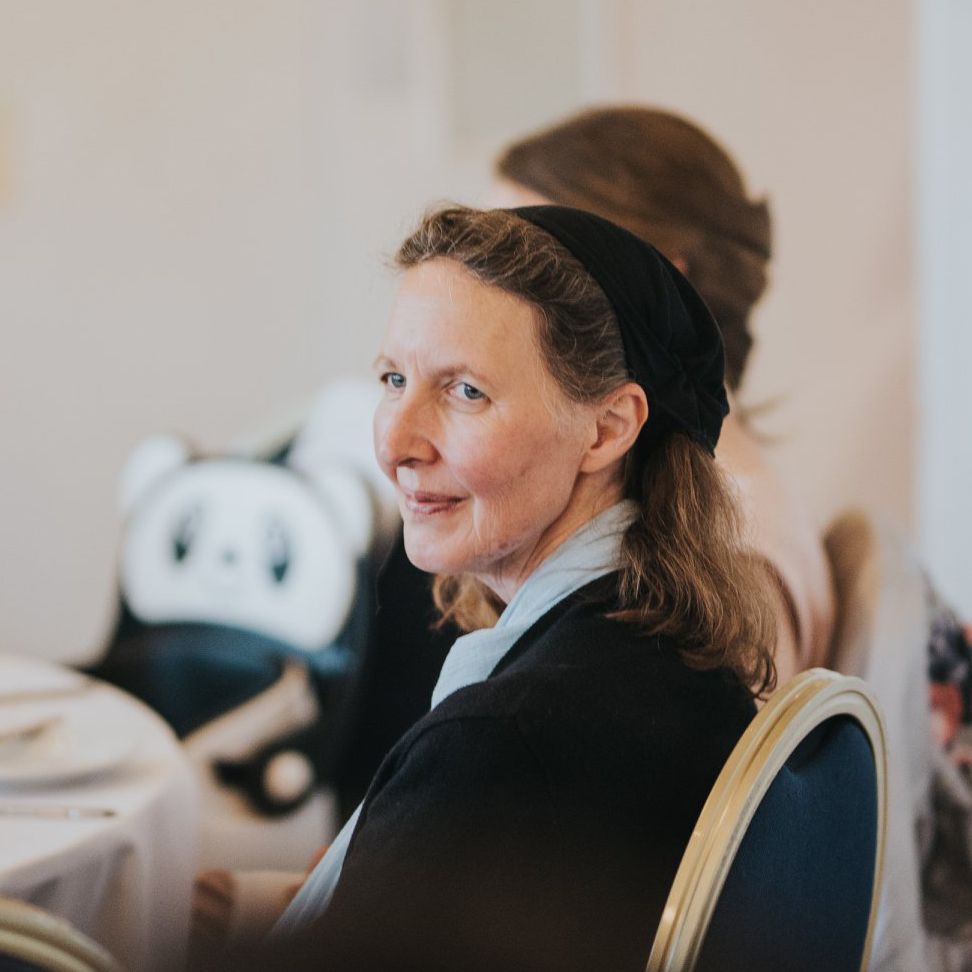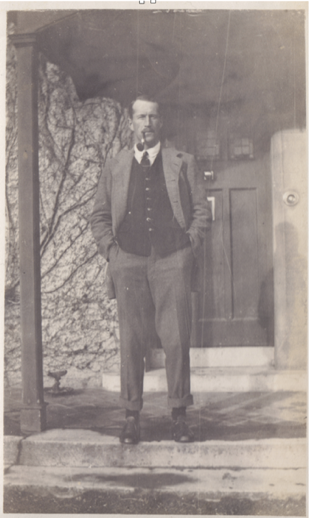
The next few letters that Poppy had kept were those written just before CHTL was captured.
In this letter written four days before, CHTL hinted at the very critical turn of events caused by Smyth's orders and the resulting mutiny of RIC (Royal Irish Constabulary) officers. CHTL had charge of the RIC in his patch and he would have known that he had quite a tough job ahead of him to keep these men on board as they were rapidly becoming disillusioned with their roles as peace-enforcers and dissatisfied with their restricted and threatened lives. More and more RIC constables were defecting to the Republican side. Speeches like Smyth's exasperated the situation further.
Hd qrs 16th Bde.
Tues 11pm (22 June)
My own Pip,
How are you. I haven’t heard for a day or two; don’t think I have written either, so I cant grumble. Hope all is going very well & that you are keeping cheerful and as comfy as possible, and keeping an eye on our Cutlett. I have practically made up my mind to retire shortly and come and look after you. I don’t see why I should carry on with all this worry and trouble when lots of other people are dying for the job, and I can live quite peacefully on and with you, and enjoy myself. I shall stay on till any serious trouble, that may occur shortly is over, and go probably about November. However you know I am always changing my mind, so don’t get excited.
We will spend Sept & Oct (our months holiday) buying houses. Cant tell you whats going on here but you will see enough from the papers; it may come to a head shortly if the Govt are firm. It is their only chance to stick to their word for once and see it through, as no one believes it possible of them, and that they will cave in at any childish threat.
Did a short tour round in the car with Col Mc Davall (the Buffs) this morning, and went out fishing with Col Danford after supper, my first effort with the dry fly; we neither caught anything. Have been asked to a dance tomorrow night but shant go.
Now to bed. Hope you are sound asleep, and dreaming of me, and our future home.
A kiss
your c
Letter addressed to: Mrs C.H. Tindall Lucas, The Hall Welwyn, Herts, postmarked 23 June.
Cutlett was the name given to the couple’s unborn child. Poppy was sometimes called ‘Piplett’ by ‘Cuthbert’ so the baby’s name was a combination of the two.
CHTL sounded quite down in this letter: almost homesick. He was obviously really missing Poppy. Even in his darkest days in France his letters rarely conveyed such a pessimistic view of his job. He must have recently heard that he hadn’t got either of the Chief Constable’s jobs that he had applied for in April. As Charles Griffin was appointed to the Brighton role on 6th June, it’s quite possible that Lt. Col George Ormerod had also by this time been appointed to the East Sussex job. CHTL would have known that that those particular doors had closed. He’d had enough of being apart from Poppy -every time they had a chance to settle down something happened to cut short their time together.
Life in Ireland was not conducive to family life. Those military wives that were in Ireland found life particularly hard, although they tried to maintain as normal a life as possible arranging various social events such as tennis matches and dances. CHTL’s commanding officer, General Strickland, had brought his wife out.
Mrs Strickland was described by Violet Bonham Carter as being:
"a youngish woman not at all bad looking – rather well dressed - with a hard-strained look on her face – very violent & unhappy – living in daily hourly terror that her husband will be assassinated & with nothing in the world to do but tremble for him & hate the Irish. She is not interested in the psychology of the situation – in fact interest & sympathy have been in her case a sin so many others completely wiped out by fear & hatred.''
Champion Redoubtable The Diaries and letters of Violet Bonham Carter 1914 – 1945 p 129
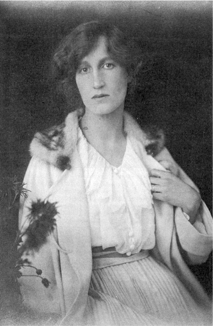
Violet Bonham Carter was the daughter of the British PM, Herbert Henry Asquith, 1st Earl of Oxford and Asquith, (PM 1908 – 16) and was also a Liberal politician herself. She met Strickland and his wife on 30th March 1921 when tensions in Ireland were even higher than they had been the year before, with IRA activity being more frequent and violent than in the relative calm days of the previous summer. In 1920 there was very much the feeling that there was an anti-British sentiment, constantly brewing under the surface, which was in danger of erupting.
Violet Bonham Carter was infatuated with Churchill. They had been very close -then Winston met Clementine and the rest is history. Violet however worked hard to help promote Churchill throughout his political life, using her influence with her father to help Winston get into high office. It is said that she carried a torch for Churchill all his life and possibly attempted suicide after he married Clementine.
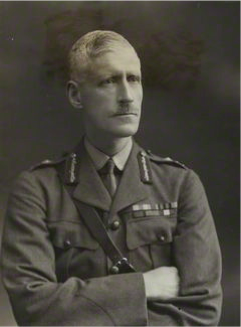
CHTL could sense that the situation would not be resolved peacefully any time soon. He was frustrated with the indecision of politicians, who couldn’t make up their minds as to whether Britain was at war in Ireland or not. He’d worked out that he had spent seven years of his life fighting and was tired of conflict and longed to get away from it all and to be able to live in peace. The horror of what he saw during WW1 was no doubt still haunting him.
CHTL didn’t know Lieutenant- General Sir Peter Strickland, who was his immediate superior in Ireland, until he met him in Germany in July 1919:
"The 6th Divn is commanded by Genl Strickland…I don’t know Strickland at all, and I don’t know for certain yet that I shall go to the 6th Divn.'' (Letter postmarked 27th July 1919)
Strickland himself survived an assassination attempt by the IRA in Cork in September 1920. He has been heavily criticised for his involvement in the trial and execution of Patrick Casey an IRA volunteer who was captured by the British after a battle at Shraherla on Sunday 1st May1921. Casey was sentenced to death by ‘drumhead court martial’ on the 2nd May 1921 and executed on the same day on Strickland’s orders. The injustice of this is not forgotten in Ireland.
In Parliament, Hansard recorded the discussion of Law and Order in Ireland. Dublin was said to be in chaos and in Londonderry tragic killings and shootings were taking place.
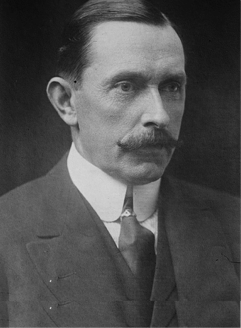
Lieut-Colonel Wilfrid Ashley (1867 - July 3, 1939) described the scene reading from a newspaper report:
“Most tragic of all yesterday's (Monday's) events was the shooting of a young man named Howard McKay, son of the governor of apprentice boys of Derry. Mr. McKay, who was about 25 years of age, and served in France with the North Irish Horse during the War, had been on holiday. He was not in uniform. He was not a resident. He only arrived in the city yesterday (Sunday) afternoon. He was on his way to his father's residence outside the city, but on the outskirts of the town he was seized by armed Sinn Feiners, bound with ropes, and then shot dead. The body lay on the roadside for several hours.” What happened to James Dobbin, an inhabitant of the town? He was severely wounded and thrown into the river and is now lying in hospital with the lower portion of his body completely paralysed. He was rescued from the river owing to the gallant exertions of the police in the face of a furious mob.
Where is the Government of this country? Where is the Government of Ireland? It is seven days since these disastrous happenings began. On Friday and Saturday it amounted to mob law. The city authorities were not in command, the troops were not in command, the police were not in command. No one was in command except a drunken mob. Have we in Ireland a Government capable of enforcing the law, that for seven days one of the big cities of the North of Ireland should be handed over to mob law in this way—I do not care whether Unionists or Sinn Feiners? I ask what possible justification can there be for allowing these things to go on and not coming, if necessary, to the House of Commons to ask for further powers or for fresh troops, which would willingly and gladly be given, in order to restore some semblance of law and order to that unhappy district?
Colonel Ashley continued listing the names of policemen shot in Dublin over the last year asking:
…Who rules in Dublin? Two bodies, the Sinn Feiners, who are Republicans, and the Transport Workers' Union who are supporters of international "Soviets." The English Government does not rule in Dublin. No man's life is safe.
MAINTENANCE OF LAW AND ORDER. HC Deb 22 June 1920 vol 130 cc2101-44
On the same day that Law and Order was being debated the Government of Ireland Bill or Home Rule Bill was being discussed in committee, with a very poor turnout of senior ministers and no clear agreement. It was proceeding at a snail’s pace with the next debate due in the Autumn. This was a topic that had been discussed for the last 80 years in one form or another; from Daniel O’Connell (who CHTL’s great uncle was an admirer of) in the 1840s through to the 1880’s when Charles Stewart Parnell led the fight. So the frustration of not being able to have autonomy in Ireland continued to fuel the violence. This was far from being one-sided with the British behaving cruelly and unjustly too. Violence breeds violence and without a political solution in sight the Irish war of Independence was set to get even more brutal. GOVERNMENT OF IRELAND BILL.HC Deb 22 June 1920 vol 130 cc2144-6
It was with this backdrop that CHTL was planning to go fishing.
